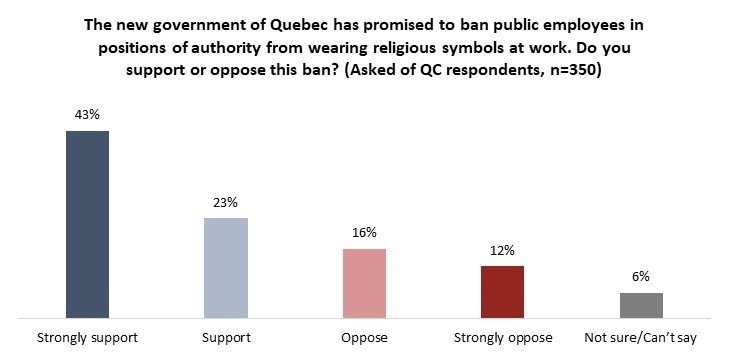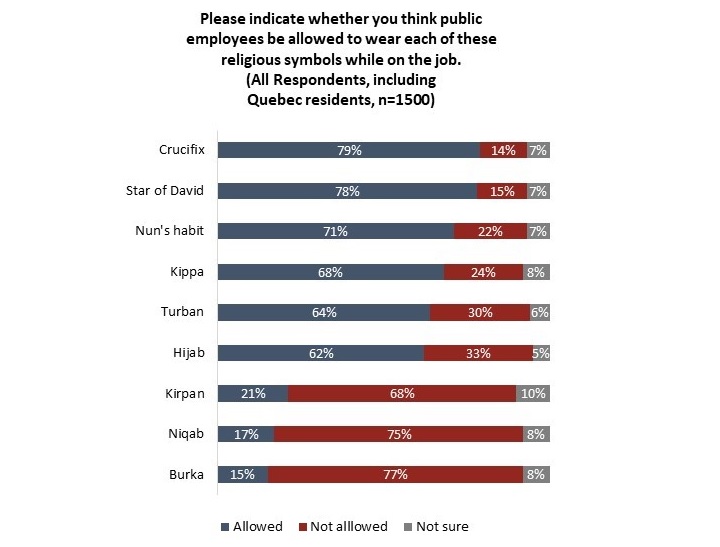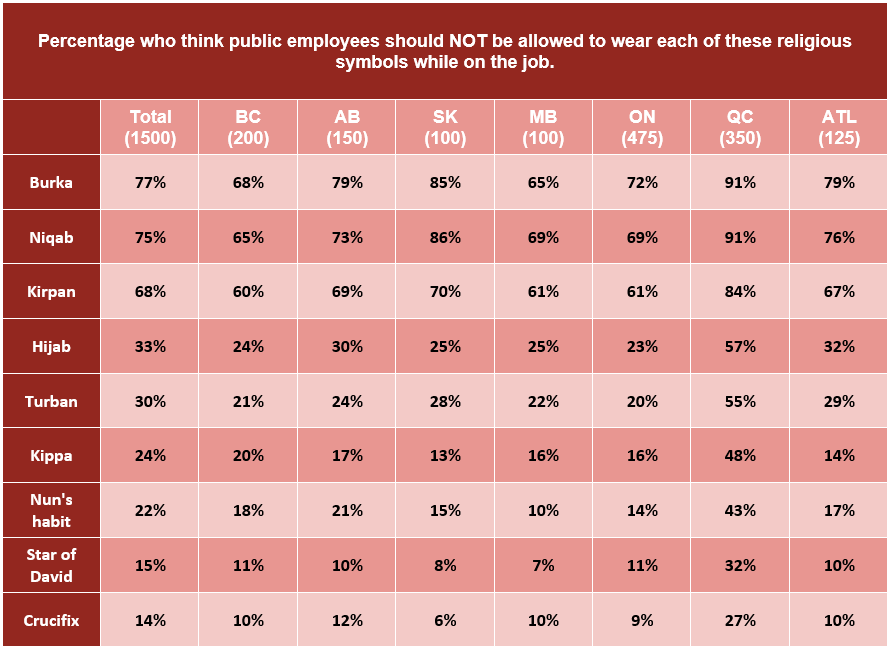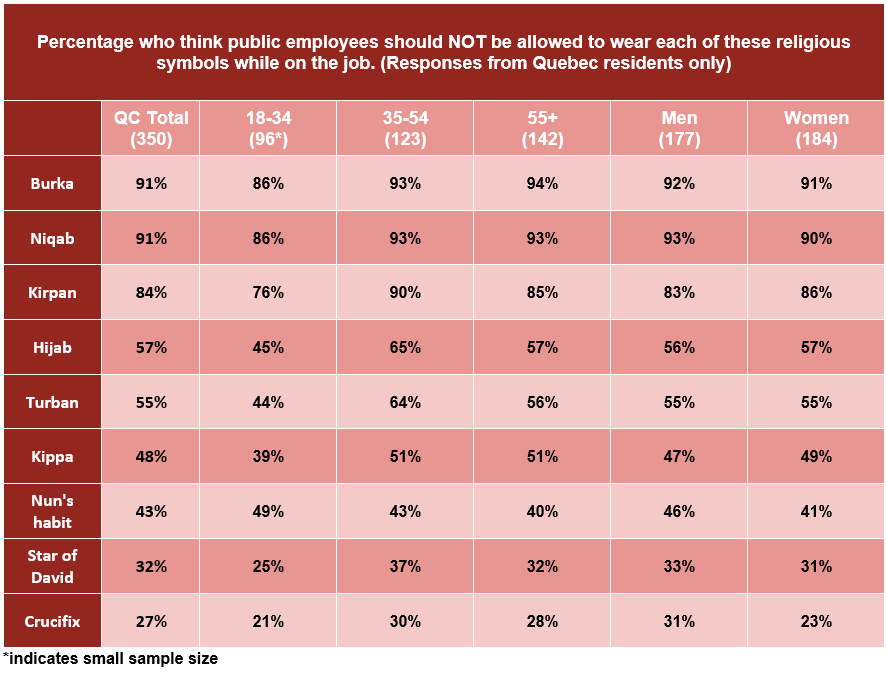The Coalition Avenir Québec (CAQ)’s proposed ban on religious symbols for public servants seems to be widely supported by Quebecers — but only when it comes to certain symbols.

According to findings by the Angus Reid Institute, about 65 per cent of Quebecers and 41 per cent of Canadians in the rest of the country say they support the Quebec government’s overall proposal.
READ MORE: EMSB commissioners unite to fight pending legislation on religious neutrality
If passed, the ban would affect public employees in positions of authority, including police, judges and teachers.
“The issue has been particularly salient in Quebec, some argue, because the province has long functioned as a distinct society, itself a minority within Canada,” the study states.
READ MORE: François Legault stands firm on religious symbol ban, eliminating school boards in inaugural address
It points out that Quebec governments have grappled for over a decade with questions of reasonable accommodation for religious minorities.
“[Premier François] Legault is the fourth Quebec premier — and the CAQ the third different governing party — to attempt to address these issues through legislation.”
“Like the proposals of his immediate predecessors, Legault’s plan has been met with harsh criticism, even as a majority of Quebecers voice support for it.”
READ MORE: François Legault doubles down on religious symbol ban after meeting with Justin Trudeau
According to the poll, 79 per cent of people surveyed in Quebec and across Canada, say wearing a crucifix is acceptable.

Get daily National news
Seventy-eight per cent of Canadians say they also approve of the Star of David.
This is a striking difference to the 17 per cent and 15 per cent who say they are comfortable with the niqab and the burka, respectively.
“Out of nine religious symbols asked about in this survey, only three (the aforementioned crucifix, star of David and nun’s habit) are acceptable to more than half of Quebecers,” the study states.
“Elsewhere in Canada, majorities see six of the nine symbols as acceptable.”
Critics of the CAQ government argue the planned legislation discriminates against non-Christians and, in particular, Muslim women.
WATCH BELOW: Quebec Premier François Legault speaks directly to English-speaking Quebecers in his inaugural speech.

“Symbols from Sikhism and Islam are less favourably viewed, particularly if they cover the face (such as a niqab or burka) or, as some argue, could be considered a weapon (as in the case of the kirpan),” the institute found.
READ MORE: Quebec group says cuts to Ontario francophones touch all linguistic minorities
Turbans and hijabs are acceptable to about 60 per cent of Canadians outside Quebec. Within the province, the majority of respondents are opposed to public employees wearing head coverings.
Across the country, the institute found young people under the age of 35 to be less supportive of a potential ban on public employees wearing religious symbols.
READ MORE: National Assembly crucifix representing Quebec ‘heritage’ only 36 years old
This was not the case for older demographics.
WATCH BELOW: François Legault stands firm on proposed religious symbol ban

“Political partisanship is also a key driver of views, with past Conservative voters mostly supporting a religious symbols ban in their province,” the study states.






Comments
Want to discuss? Please read our Commenting Policy first.